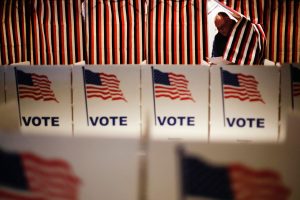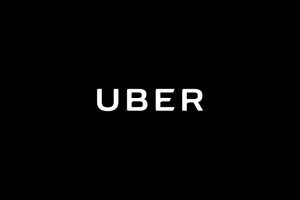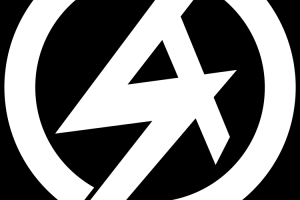Theresa May has asked the Queen for permission to form a Conservative party-led minority UK government backed by Northern Ireland’s Democratic Unionist Party.
A spokesperson for Downing Street said on Saturday, June 10 the DUP had agreed to a “supply and confidence” deal to support the Conservatives in government.
The Conservatives won 318 seats in the June 8 general election, eight short of the 326 needed to secure a majority. Speaking at Downing Street on Friday, May said she was confident the Conservatives could work with the DUP “in the interests of the whole United Kingdom.”
“This will allow us to come together as a country and channel our energies towards a successful Brexit deal that works for everyone in this country, securing a new partnership with the EU which guarantees our long-term prosperity.”
Theresa May
BBC explains the deal means the 10 DUP members of parliament will back the Conservatives on measures they might otherwise lose, giving them a total of 328 votes.
https://www.grasswirenews.com/2017/06/uk-general-election-2017-results-liveblog/
Northern Ireland nationalists in parliament
Theresa May’s failure to secure an overall majority left the DUP holding the balance of power, and the party’s new power in Westminster has political implications for the devolved government in Northern Ireland.
The DUP secured 10 seats, while the more moderate Ulster Unionist Party lost its two MPs and one Independent Unionist, Sylvia Hermon, was elected.
On the other side of Northern Ireland’s nationalist/unionist divide, the moderate Irish nationalist Social Democratic and Labour Party was ousted from its three Westminster seats, leaving the country’s nationalist population without representation in parliament. Sinn Fein’s seven MPs stood on the party’s traditional abstentionist platform, and won’t take their seats.
It is the first time since the 1830s that no Irish nationalist will sit in the Westminster parliament.
The UUP and SDLP have been wiped out in the general election, including Mark Durkan who lost his seat in Foyle to Sinn Fein pic.twitter.com/7OxVrGXG12
— BBC Radio Foyle (@BBCRadioFoyle) June 9, 2017
So who are the DUP?
Founded in 1971 by Rev. Ian Paisley, the DUP is the most Ulster loyalist of the main Northern Ireland unionist parties. Strongly politically and socially right wing, it has strong links to Protestant churches, particularly the evangelical Free Presbyterian Church of Ulster, the church Paisley founded. The “Free P” congregation accounts for about 1% of Northern Ireland’s population but around one third of DUP members are also members of this church.
The party opposes same-sex marriage and abortion, both of which are legal in the rest of the UK. Past leader Peter Robinson said homosexuality was against Christian theology, and his wife, Iris, also a DUP politician, said homosexuality was an abomination and that gay people can be “turned around.”
The DUP used a controversial veto mechanism to prevent the law being changed in Northern Ireland, even though a majority of Members of the Legislative Assembly voted to change the law. The DUP invoked the “petition of concern,” which was designed to safeguard minority rights by preventing one tradition in Northern Ireland from dominating the other.
Also…
The DUP appointed a climate change denier as environment minister in Northern Ireland:
In 2009, Sammy Wilson who said climate change was a “gigantic con” and a hysterical “semi-religion,” banned government television advertisements, saying they were insidious green “propaganda.”
Paul Givan, Minister for Communities until 2017, promotes creationism and was responsible for a motion calling for schools in his constituency to teach alternatives to the theory of evolution.
Ex-MLA Nelson McCausland, while Minister of Culture, Arts and Leisure wrote to the Ulster Museum in 2010 requesting that it display a range of Creationist material, claiming that it was the Museum’s job to “reflect the views of all the people in Northern Ireland” rather than to reflect the understanding of modern science.
McCausland also believes that the people of the British Isles are descended from the lost tribes of Israel.
Ex-Minister Edwin Poots believes in “youth earth” Creationism and rejects the theory of evolution. In a BBC interview, Poots said: “My view on the earth is that it’s a young earth. My view is 4,000 BC.”
As a minister, Poots also banned blood donations from gay people, saying “I think that people who engage in high-risk sexual behaviour in general should be excluded from giving blood.”
“Soft Brexit” or “hard Brexit”?
The DUP was the only large party in Northern Ireland that supported the UK exit from the European Union. Northern Ireland voted 56-44 percent to remain the EU.
An ongoing investigation by Peter Geoghan and Adam Ramsay for OpenDemocracy found the Leave campaign funneled money through the DUP for ads in the Metro newspaper (which does not circulate in Northern Ireland).
The money appears to have come from companies linked to Saudi intelligence agencies. Northern Ireland is the only part of the UK that doesn’t require large political donors’ names to be public, making the tracking of dark money difficult.
However, the DUP wants to avoid a hard border with Ireland because a significant number of its mainly rural supporters are farmers who are set to be worst hit by tariffs and the loss of free movement with the EU.
. @NigelDoddsDUP “out job is not to refight old battles, but to use our mandate and influence to get the best deal for NI in Brexit” #GE17
— DUP (@duponline) May 8, 2017
Links to terror groups
The general election was dominated by a few issues including repeated Conservative criticism of Labour leader Jeremy Corbyn’s stance on terrorism and past meetings with members of Sinn Féin and the Irish Republican Army. But what about the DUP?
On June 1, Arlene Foster met Jackie McDonald, leader of the the loyalist Ulster Defence Association, less than 48 hours after the gunning down of a man in the city of Bangor that has been linked to the group.
The UDA is a paramilitary group that killed more than 400 people during The Troubles. Although active since 1971, the group was not proscribed until 1992, in part because it used the cover name Ulster Freedom Fighters when claiming attacks so that the UDA would not be outlawed. The UFF was proscribed in 1973.
Several DUP candidates were endorsed by the Loyalist Communities Council, an umbrella group founded in 2015 which is supported by the UDA, Ulster Volunteer Force, and Red Hand Commando paramilitary groups.
UDA endorses #Pengelly in South Belfast – #DUP's Foster feeling the heat https://t.co/QM7Snxhsay
— Belfast Telegraph (@BelTel) June 2, 2017
The DUP was also strongly linked to Ulster Resistance, a paramilitary group set up in November 1986 as a response to the Anglo-Irish Agreement, a stepping stone document that led towards 1998’s Good Friday/Belfast Agreement that gave the Irish government a role in institutions in Northern Ireland.
Ulster Resistance’s first meeting was chaired by the DUP’s Sammy Wilson and was addressed by Ian Paisley, DUP deputy leader Peter Robinson and DUP assembly member Rev. Ivan Foster, who joined the the party in 1964 and left in 1989, saying it had become too liberal.
The DUP were the only major party in Northern Ireland to oppose the Good Friday Agreement. Wilson was re-elected to parliament in 2017.
On June 18, 1994, members of the paramilitary Ulster Volunteer Force armed with a VZ58 automatic rifle opened fire inside the Heights Bar in Loughinisland, County Down, killing six people and wounding five others. The attack was in retaliation for the Irish National Liberation Army’s murder of UVF members two days earlier, and Heights Bar was mostly used by Catholics.
A Police Ombudsman report published last June revealed that the rifles used in the massacre were among those imported by Ulster Resistance for the UVF and UDA.
The Ombudsman further found that weapons imported by Ulster Resistance were used in at least 70 murders and attempted murders.
In April 1989, three men were arrested in Paris after police uncovered a plot to swap missile technology with South African traffickers in exchange for guns intended for Ulster Resistance, the UDA and UVF.
The DUP maintains it cut ties with Ulster Resistance in 1987 after it learned the group was smuggling guns into the country.
Future of power-sharing government
Within Northern Ireland, the DUP and Foster in particular are embroiled in a scandal over a failed green energy scheme, which led to the breaking up of the Northern Ireland Assembly in January. The country’s political parties have been unable to reform the devolved government after the March 2 snap election.
The DUP won 28 seats in the March 2 Assembly election, retaining its position as the largest party but losing 10 seats. Irish nationalist party Sinn Féin won 27, a loss of one seat. For the first time since the creation of the state, unionism lost its overall majority in Northern Ireland.
#AE17 final seat results:
DUP 28(-10)
SF 27(-1)
SDLP 12(-)
UUP 10(-6)
APNI 8(-)
GP 2(-)
PBP 1(-1)
TUV 1(-)
Ind 1(-)Total 90 MLAs(-18)
— Ireland Elects (@IrelandElects) March 4, 2017
Negotiations to form a new power-sharing government stalled, and Sinn Féin called for fresh elections if an agreement could not be reached by the March 27 deadline.
Secretary of State for Northern Ireland James Brokenshire gave the parties more time in hope of preventing yet another election. Speaking at Stormont, Brokenshire said there was “no appetite” for another Assembly election – it would be Northern Ireland’s third since May 2015.
Brokenshire threatened a new election or the return to direct rule if no agreement could be reached by early May, but then Theresa May called the snap general election, forcing the deadline to be moved to June 29.
Given the DUP’s performance in the June 8 general election, Foster is unlikely to acquiesce to Sinn Féin’s demands for her to step down as DUP leader. As the leader of the largest party, Foster would likely be First Minister and share power with the Sinn Féin leader in Northern Ireland, Michelle O’Neill.
Sinn Féin was already threatening to force a new Assembly election, and the party may choose to pursue that route if it sees a chance to capitalize on local discontent over the DUP’s newly-expanded powers.
Brokenshire admitted in March that there significant barriers to an agreement, such as Sinn Fein’s demands for an Irish language act and the issue of legacy cases, including DUP’s failure to support funding for inquests into killings during The Troubles.
Northern Ireland’s next DPP to face Troubles legacy ‘nightmare’ https://t.co/5sPwzl7L3y
— The Irish Times (@IrishTimes) May 17, 2017
O’Neill has stated that return to direct rule is not an option, and it would require emergency legislation as the 2006 St. Andrew’s agreement in fact repealed the UK government’s power to impose direct rule.
However, a sort of soft direct rule is not impossible, as an anonymous DUP negotiator told The Guardian in April: “We firmly believe the secretary of state will start a process of creeping direct rule, which no one also really wants, rather than trigger a new election. An election without an agreement is meaningless and I don’t think it’s what people want out there.”




